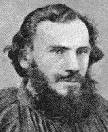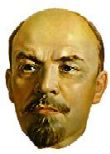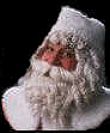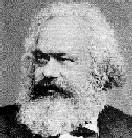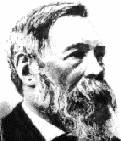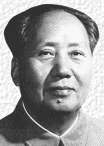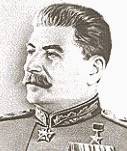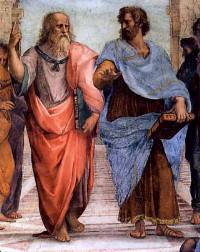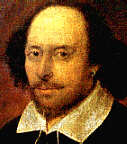Which of the following 19th-century novelists were women?
|
| Jane
Austen
(1775-1817)
was arguably the most
influential
19th-century
woman novelist.
| 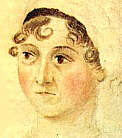
|
Famous Openings. Name the books which begin with the
following words. Name each author.
[For the correct
answers, click the blue button before each quotation.]

| "It was the best of times, it was the worst of times."

| "I sing of arms and of the man..."

| "If music be the food of love, play on."

| "The whole of Gaul is divided into three parts."

| "All human beings by nature desire to know."

| "It was a dark and stormy night."

| "Whan that Aprille with his shoures sote the droghte of
Marche hath perced to the rote."

| "One morning, Gregor Samsa awoke from
troubling dreams to find himself transformed in his bed into
a monstrous vermin."
| | | | | | | |
In Dostoevsky's novel The Brothers Karamazov, what were the
names of Fyodor Karamazov's sons?
- Vladimir, Nikita, Leonid
- Yul, Richard, William
- Pyotr, Mikhail, Boris
- Harpo, Chico, Groucho
- Pavel, Nikolai, Aleksandr
- Dmitry, Ivan, Aleksei
| Fyodor
Mikhailovich
Dostoevsky
(1821-1881)
| 
|
Divine
Controversies.
Identify
the following great works.
[For the correct answers, click the blue
buttons.]
| 
| Detail from
Michelangelo's
Creation of Man
Click here to enlarge.
|

| The author of this epic poem says that his purpose is to
"justify the ways of God to men."

| In this work, the warrior Arjuna hesitates on the verge
of battle to engage in a lengthy discussion with his charioteer, Krishna,
concerning the nature of human and divine existence.

| The author of this medieval essay defines God as "that
than which nothing greater can be conceived" and reasons that such a being
must be understood to exist in reality.

| This holy book begins by praising God, "the Lord of the
Worlds, the Beneficent, the Merciful" and "Master of the Day of Judgment."

| The protagonist of this 19th-century work proclaims the
death of God, saying, "Away with such a God! Better to have no god;
better to choose one's own destiny; better to be a fool; better to be a
god oneself!"

| In this work, God sternly rebukes a tormented human being
who asks why he must suffer. "Who is this," demands God, "that darkeneth
counsel by words without knowledge?"
| | | | | |




